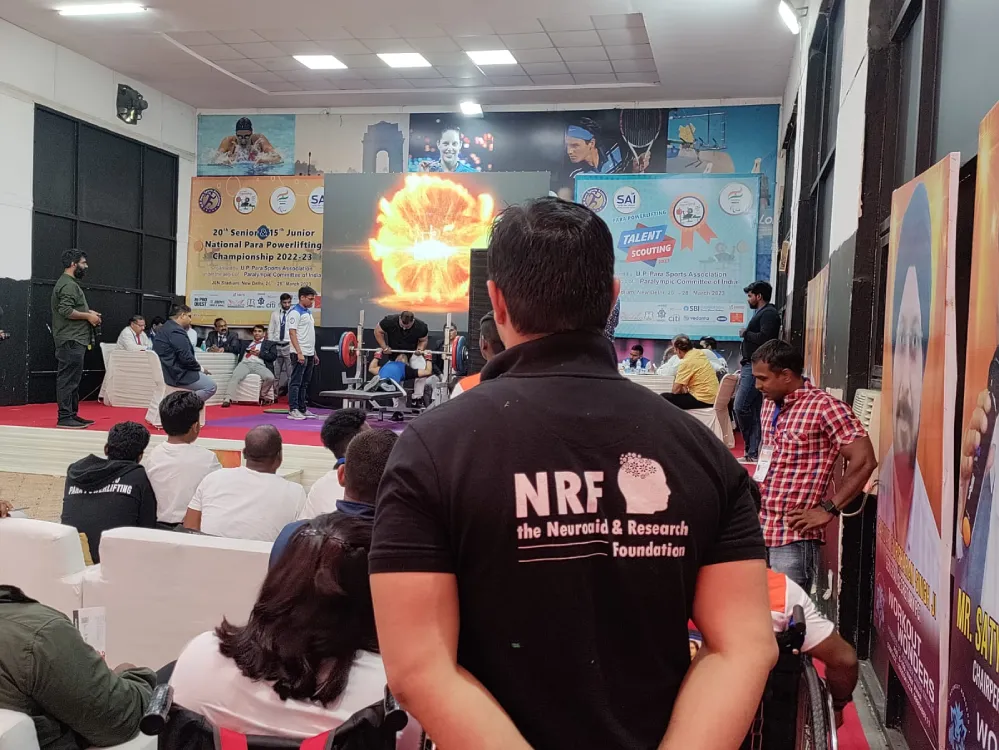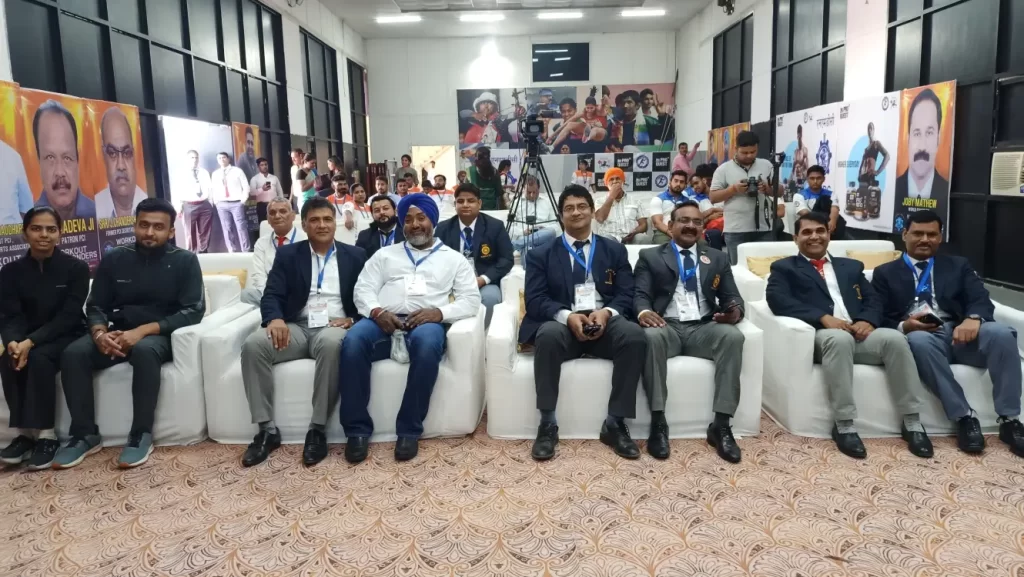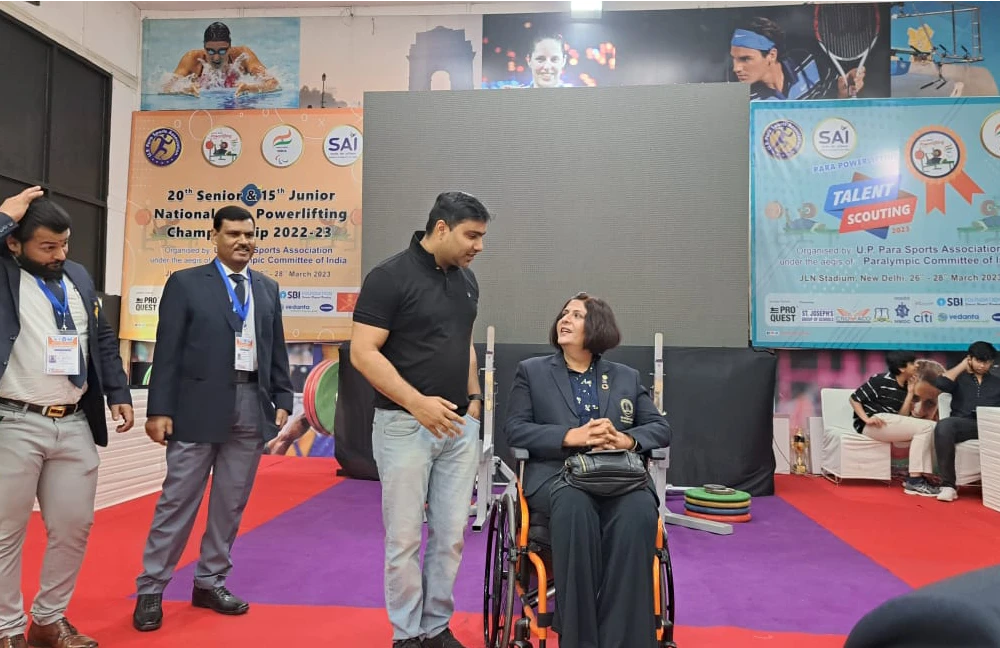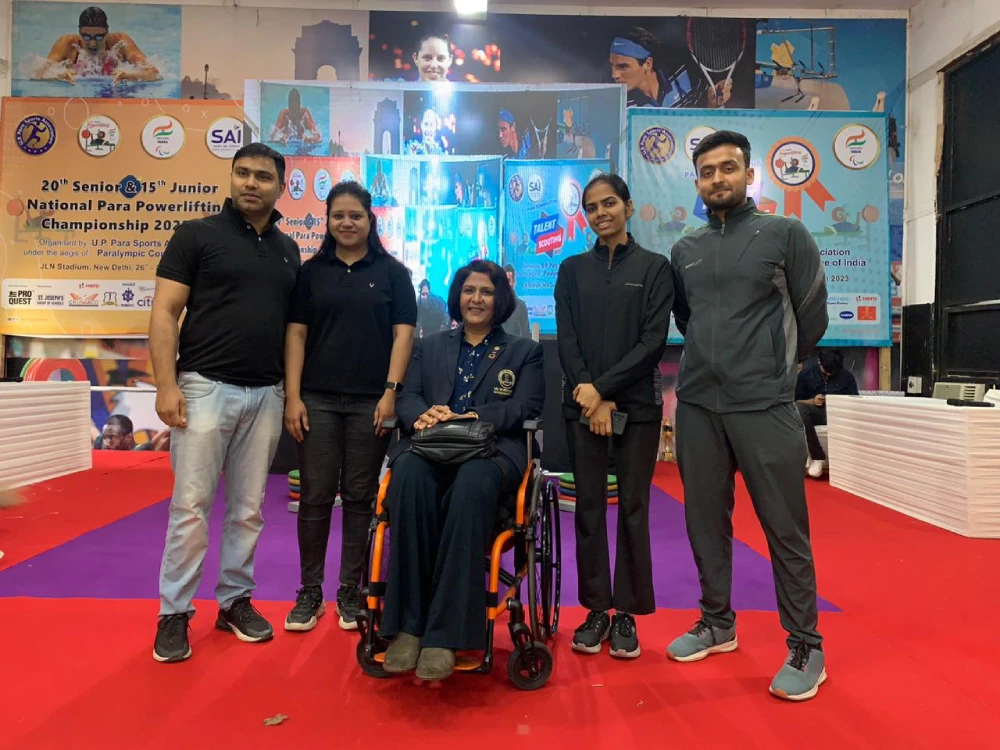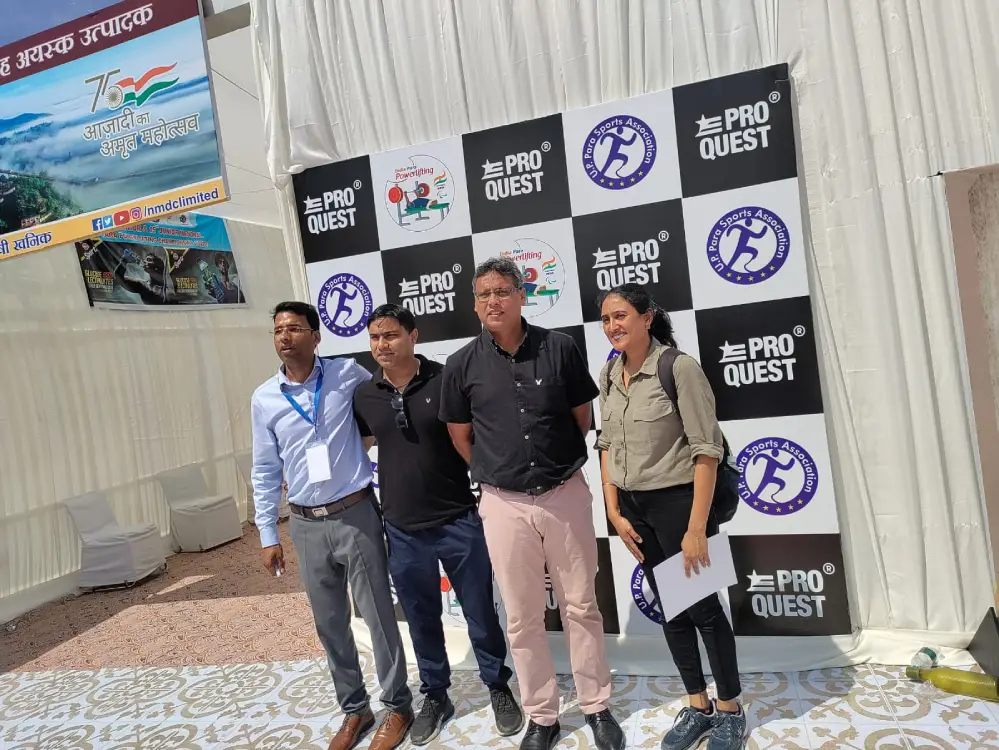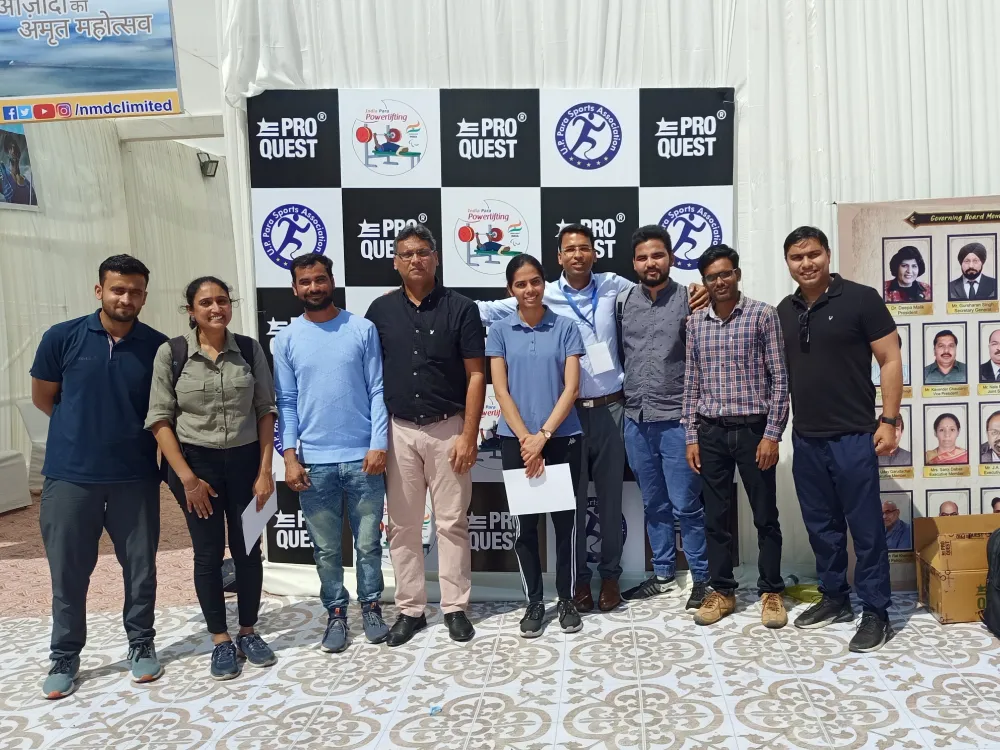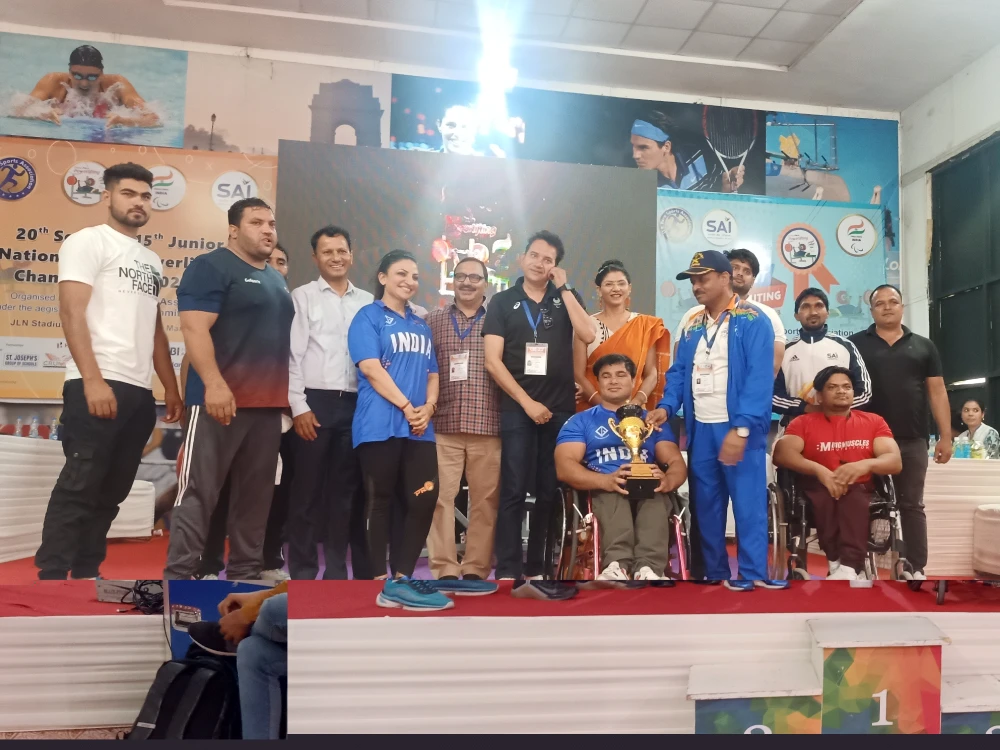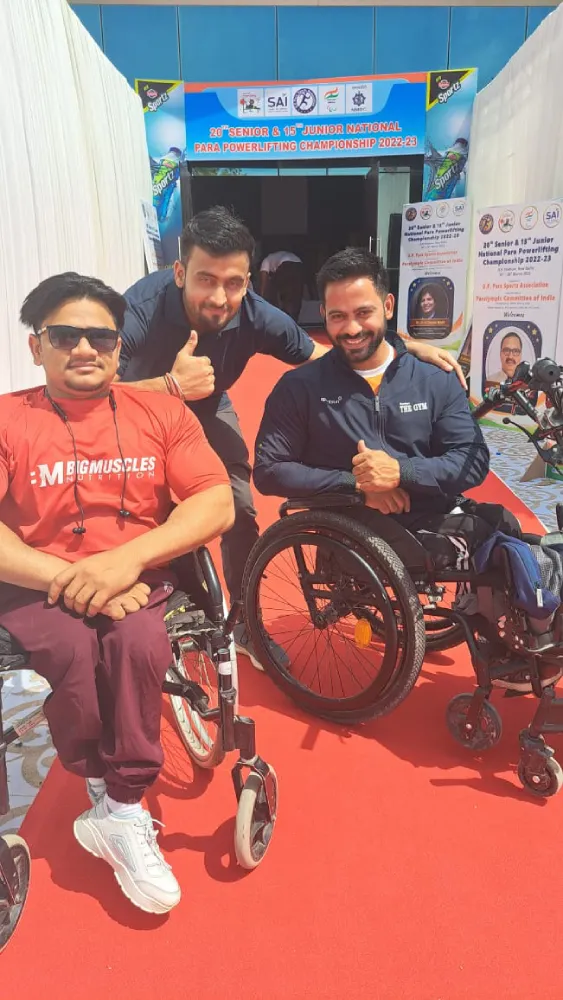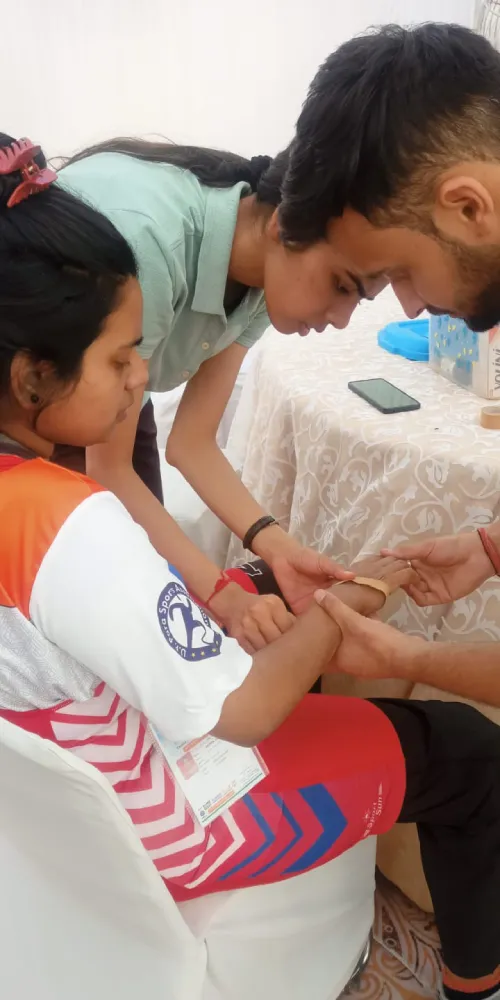Para Powerlifting demands exceptional strength, technique, and physical resilience from athletes with impairments. To achieve peak performance and reduce injury risk, para powerlifters rely heavily on comprehensive physiotherapy support. Physiotherapists play a crucial role before, during, and after competitions to ensure athletes maintain optimal health and performance levels.
The Neuroaid and Research Foundation (NRF) provided the much-needed physiotherapy support for the 20th Senior & 15th Junior National Para Powerlifting Championship 2022-2023, organised by the UP Para Sports Association, under the aegis of the Paralympic Committee of India. The event took place in New Delhi from March 26th to 28th 2023, and was well-organised with facilities and amenities specifically designed for wheelchair athletes.
Event Highlights
The event kicked off with an inspiring opening ceremony where Ms Deepa Malik, the first Indian to win a medal in Paralympic Sports, shared her experiences and motivated the athletes. The athletes demonstrated remarkable sportsmanship and commitment, comparable to their able-bodied counterparts.
A dedicated warm-up area, equipped with benches and barbells was set up for athletes to prepare before their competition lifts. Renowned athletes from across India participated, including Havildar Hokato Sema, who had lost his left leg in a mine blast; para lifter Mr Wheelchair India Mr Gulfam Ahmed; and Mr Vinod Thakur, National Champion at para powerlifting and professional dancer at India’s Got Talent.
During the event, an amateur lifter from Uttar Pradesh developed a wrist injury. The NRF physiotherapists managed the injury effectively with readjustment and taping, preventing further damage. Additionally, the team coach, who developed back pain while demonstrating a bench press posture, received timely physiotherapy assistance, allowing him to continue training the athletes.
Physiotherapy Support
- Pre-Competition Support – Assessment and Evaluation
The NRF team conducted detailed assessments of each athlete’s physical condition, identifying potential weaknesses and imbalances. They evaluated range of motion, muscle strength, and overall functional capacity, tailoring individualised training programs. - Injury Prevention: Personalized warm-up routines included dynamic stretching, mobility exercises, and activation drills. Strength and conditioning programs were designed to enhance muscle stability and joint integrity, focusing on injury-prone areas.
- Technique Optimization: Collaborating with coaches, the physiotherapists ensured athletes followed proper lifting techniques, minimizing strain or injury risks. They provided biomechanical analysis and feedback to refine lifting form and efficiency.
On-field Support
- On-Site Physiotherapy Assistance: The NRF team was present at the competition venue to provide immediate care for injuries during lifts. They managed acute injuries using techniques like taping, bracing, and soft tissue manipulation.
- Warm-Up and Cool-Down: Athletes were guided through proper warm-up routines to prepare their muscles and joints. Cool-down procedures included stretching and low-intensity exercises to aid recovery and reduce muscle soreness.
- Pain Management: Modalities such as ice, heat, and electrical stimulation were used to manage pain and inflammation. Therapeutic massages and other manual therapies alleviated muscle tension and promoted circulation.
Post-Competition Support
Recovery Strategies: Post-competition recovery plans included rest, hydration, nutrition, and active recovery exercises. Techniques like hydrotherapy, cryotherapy, and compression garments enhanced recovery and reduced delayed onset muscle soreness (DOMS).
Mr Sanjeev Chaudhary, CEO of the Paralympic Committee expressed gratitude to Team NRF for their exemplary support during the three-day event held at JLN Stadium, Delhi.
